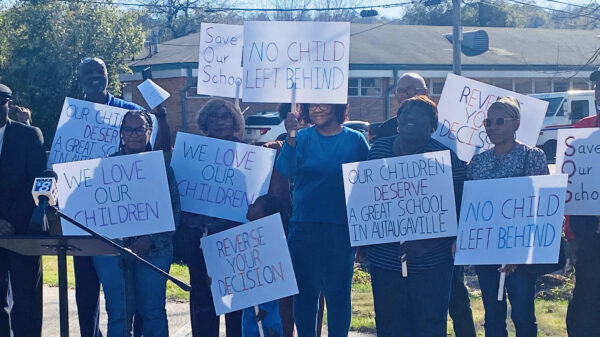It was several years ago, I don’t remember how many. But it doesn’t matter. What does is that I remember the moments like they were yesterday. I talked to the principals of two Montgomery elementary schools. Both with about 500 students.
However, that’s where the similarities ended. One was a magnet school. One was a traditional school with a high rate of student poverty. I asked the principals of each how many members their PTAs had. One had 800. “We have all the mamas and daddies and most of the grandparents,” I was told.
It was a very different story at the other school where they had one parent member of the PTA.
Two entirely different cultures at these schools: One with a PTA that raises thousands of dollars each year to provide needed resources. The other with no such support system.
And this is what most legislators seem to be clueless about. It’s one reason I have suggested that every member of the Legislature should spend at least four hours as a teacher’s aide in a classroom at a high-poverty school.
Instead of trying to figure out where the blood is coming from, all we’re doing is looking for Band-Aids.
So we get things being considered in this legislative session like the bill by Sen. Del March that says that any child can attend school in any system they wish to – so long as their parent pays “tuition” that equals the amount of local funding that system gets. Which would be about $7,000 per student for someone going to a Mountain Brook school.
Or we get the bill from Rep. Terri Collins that would give more funding to charter schools. Or the one from Rep. Charlotte Meadows to divert more money from public schools so that the Alabama Accountability Act can give out more scholarships to private schools – even though studies by the University of Alabama show these scholarship students are performing no better than their peers in public schools.
We’re simply tinkering around the edges. Just moving the deck chairs on the Titanic. Just scrambling for more Band-Aides, and ignoring the real problems of that school with one parent in their PTA.
We love to talk about “failing schools” in Alabama. Each year we designate about 75 of them. But we don’t have “failing schools” — we have “failing school communities.”
And in high-poverty schools, we think teachers can solve all the problems. This is about as realistic as thinking Nick Saban could be the head coach at Vanderbilt and still win the National Championship. Why is Saban such a good coach? It begins with him getting the top players in the country. In 2020, his recruiting class was ranked No. 2 in the nation, while Vanderbilt’s was ranked No. 53.
So when we bring up bills like those above, we are mistakenly thinking that football players at Vandy are as good as those at Bama. That they can run as fast, are as big and strong and blessed with as much overall athletic ability.
Nothing could be further from the truth.
Still, we constantly hear legislators talk about how they want to give kids from poor homes an option. Is it realistic to think that parents who won’t even join a PTA will come up with $7,000 a year to send their child to a Mountain Brook school?
(And don’t forget that when the Alabama Accountability Act was first passed, it said kids in “failing schools” could transfer to other systems. This quickly sent a chill through Birmingham’s “over the mountain” schools and the bill was amended to allow systems to pass a resolution saying they would not take such children.)
So what should we do?
We should adopt the approach of “community schools” that look at the whole child. Not just their academics, but the totality of their lives: health issues, mental health concerns, dental care, mentoring, tutoring, etc. We should have classes that teach mamas how to raise a child.
This isn’t easy. It takes a lot of extra resources. But there are systems all over the country doing this. Cincinnati is an excellent example. Several years ago, Montgomery began a pilot community school program at two schools. Then we brought in Mike Sentance from Massachusetts to be state school superintendent and when he intervened and took over the Montgomery system, he stopped these pilot programs. But this was hardly a surprise since he was not an educator.
Neither are Collins, Meadows or Marsh. Instead of dealing with the real issues some of our students face, they trot out their bills claiming they will work magic. Which is about as realistic as believing that Vanderbilt will be national champions this fall.













































